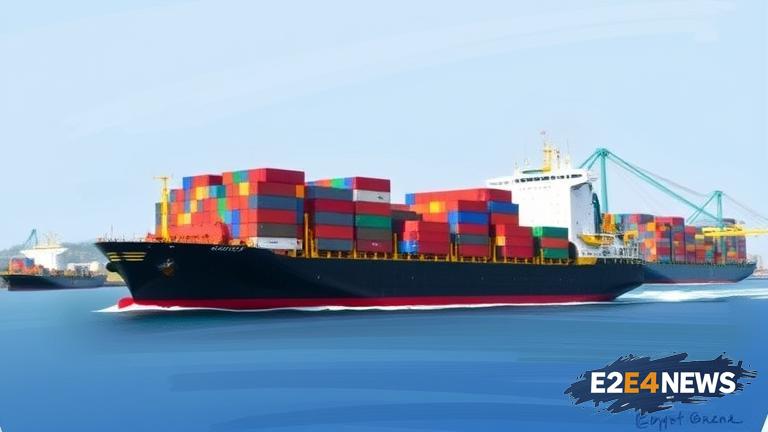Egypt has taken a significant step towards enhancing its maritime tax collection capabilities, thanks to a training program provided by the UN Economic Commission. The training, which focused on improving tax collection in the maritime sector, is expected to have a positive impact on the country’s revenue and economic growth. The maritime sector is a crucial component of Egypt’s economy, with the Suez Canal being one of the busiest shipping lanes in the world. The training program, which was attended by officials from the Egyptian Ministry of Finance, aimed to equip them with the necessary skills and knowledge to effectively collect taxes from maritime companies operating in the country. The program covered various topics, including tax policy, tax administration, and tax compliance, with a focus on international best practices. The training also included sessions on risk management, audit, and investigation techniques, which will enable Egyptian tax authorities to better detect and prevent tax evasion. The UN Economic Commission’s training program is part of a broader effort to support Egypt’s economic development and improve its tax collection capabilities. The program is also expected to help Egypt to better comply with international tax standards and regulations, such as the OECD’s Base Erosion and Profit Shifting (BEPS) project. The training program is a significant milestone in Egypt’s efforts to strengthen its tax administration and improve its revenue collection. The country has been working to reform its tax system and improve its business environment, with the aim of attracting more foreign investment and promoting economic growth. The maritime sector is a key area of focus for Egypt, with the government investing heavily in the development of its ports and shipping infrastructure. The Suez Canal, which is one of the most important shipping lanes in the world, is a major source of revenue for Egypt, with thousands of ships passing through it every year. The training program will help Egypt to better collect taxes from maritime companies operating in the country, which will have a positive impact on the country’s revenue and economic growth. The program will also help to improve transparency and accountability in the maritime sector, which is essential for attracting foreign investment and promoting economic growth. The UN Economic Commission’s training program is a testament to the organization’s commitment to supporting the economic development of its member states. The program is also a reflection of the strong partnership between the UN Economic Commission and the Egyptian government, which is working together to promote economic growth and development in the country. The training program is expected to have a long-term impact on Egypt’s tax collection capabilities, with the country expected to see an increase in revenue from the maritime sector. The program will also help to improve the business environment in Egypt, making it more attractive to foreign investors and promoting economic growth. In addition to the training program, the Egyptian government has also been working to improve its tax laws and regulations, with the aim of making the country more competitive and attractive to foreign investors. The government has introduced a number of tax reforms, including a new tax law that aims to simplify the tax system and reduce bureaucracy. The law also introduces a number of incentives for foreign investors, including tax exemptions and reductions. The Egyptian government has also been working to improve its tax administration, with the aim of making it more efficient and effective. The government has introduced a number of measures to improve tax compliance, including the use of technology to track and monitor tax payments. The training program provided by the UN Economic Commission is a significant step towards achieving this goal, and is expected to have a positive impact on Egypt’s tax collection capabilities and economic growth. The program is also expected to help Egypt to better comply with international tax standards and regulations, which is essential for attracting foreign investment and promoting economic growth. Overall, the training program provided by the UN Economic Commission is a significant milestone in Egypt’s efforts to strengthen its tax administration and improve its revenue collection. The program is expected to have a long-term impact on Egypt’s tax collection capabilities, and will help to promote economic growth and development in the country.
